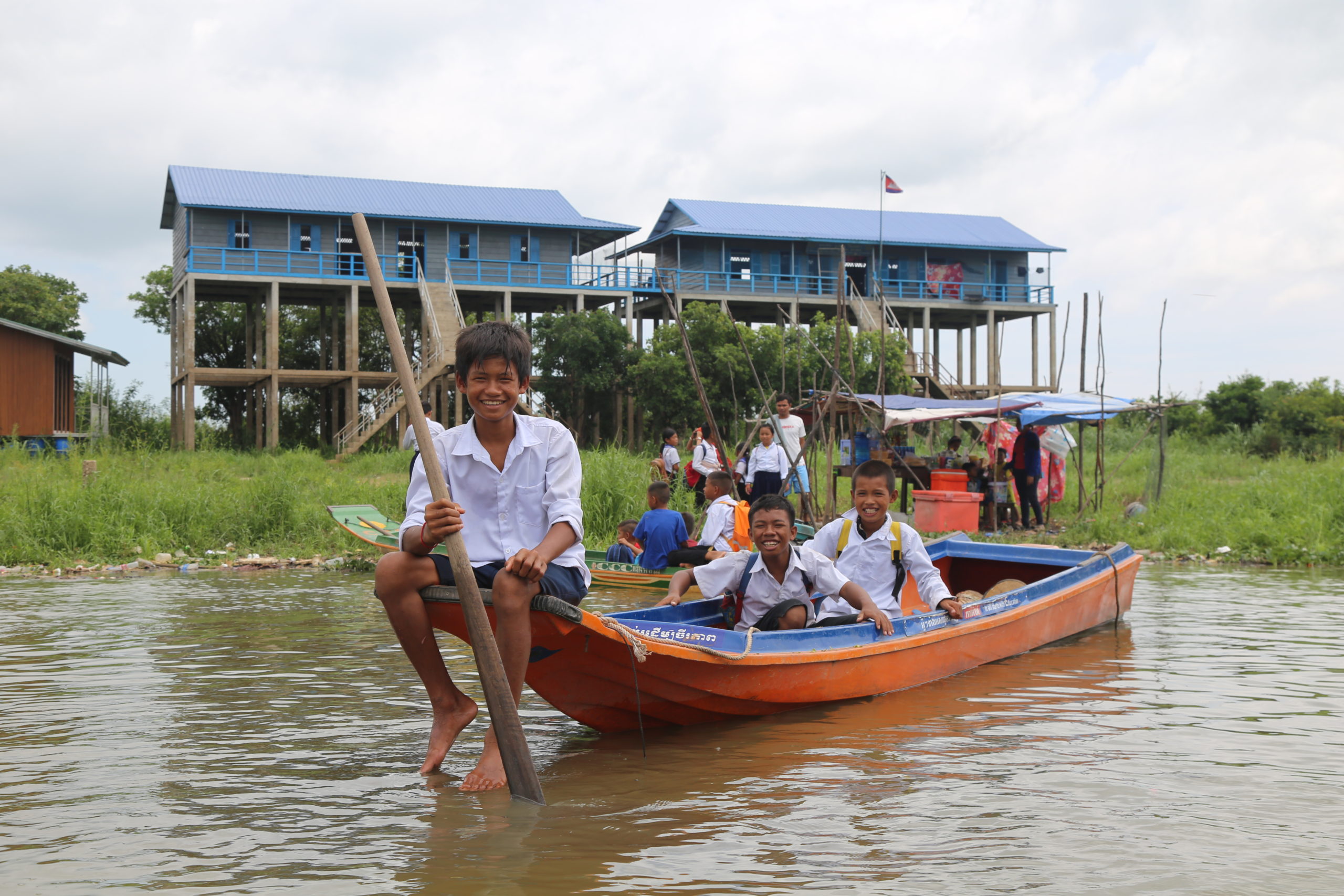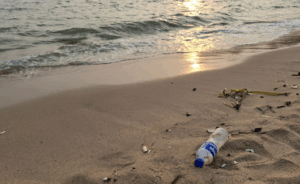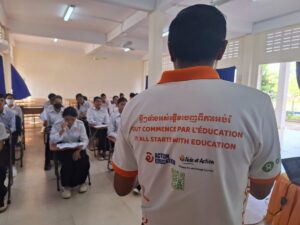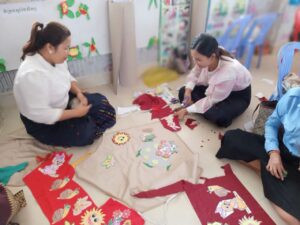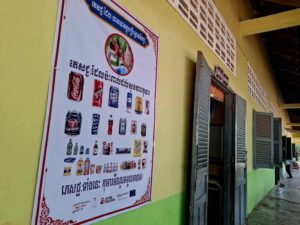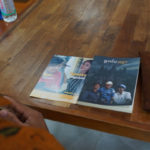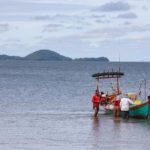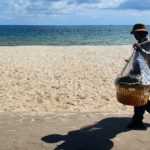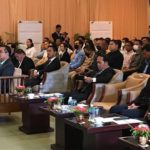Cambodia Consortium Out-of-School Children (CCOSC), in collaboration with Education Above All’s Educate a Child, refurbished a floating school in one of Tonle Sap Lake’s remote flooded villages. The floating mobile school was created to accommodate the children of Kbal Toal’s flood-prone neighborhoods, where many are facing multiple barriers such as geographical distance, poverty, poor school conditions, and others. To solve such issues, an old floating school was renovated with the core principle of bringing the school closer to the children rather than bringing the children to the school.
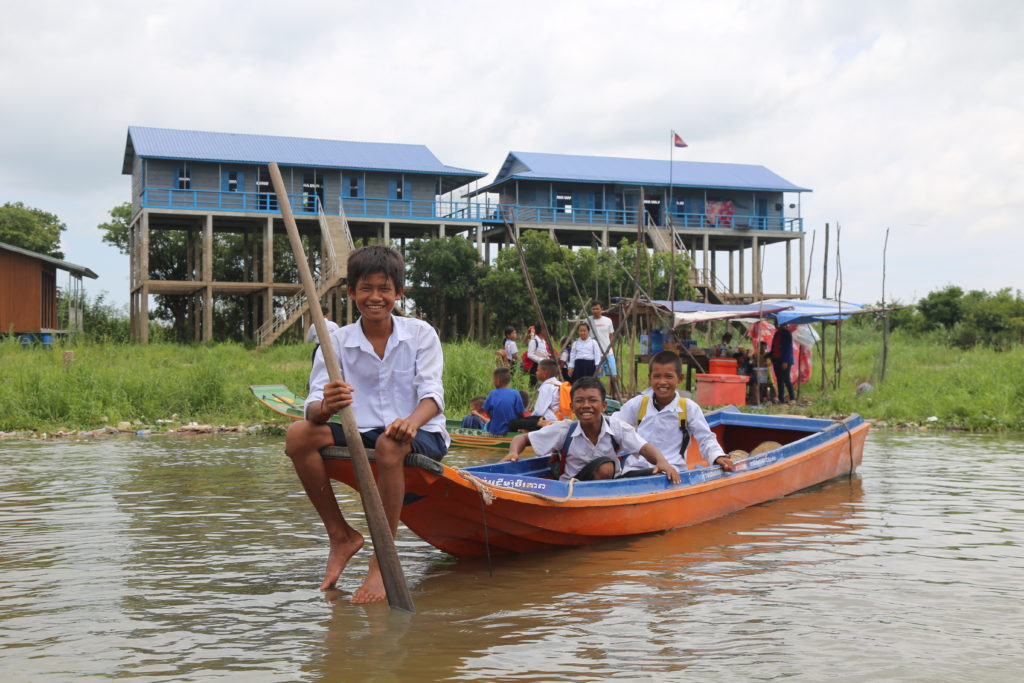
The lack of access to education during the rainy season is a major problem for the children of Kbal Taol Primary School, who are already at a disadvantage due to its remote location. There are a few things that could be done to address this problem, such as building a mobile floating school or providing transportation for the children to and from school during the rainy season. It is important to raise awareness of this issue so that more people can help support the school and its students.
In 1996, a mobile floating school was built in Kbal Taol village on Tonle Sap Lake in Cambodia, the biggest freshwater lake in Southeast Asia. The school is used during the rainy season, between mid-July and December, when the Lake expands fourfold and reaches a maximum depth of 8-11 meters. This allows children to continue their education even though the villagers relocate to higher ground and further away (10 kilometers) from the concrete building school.
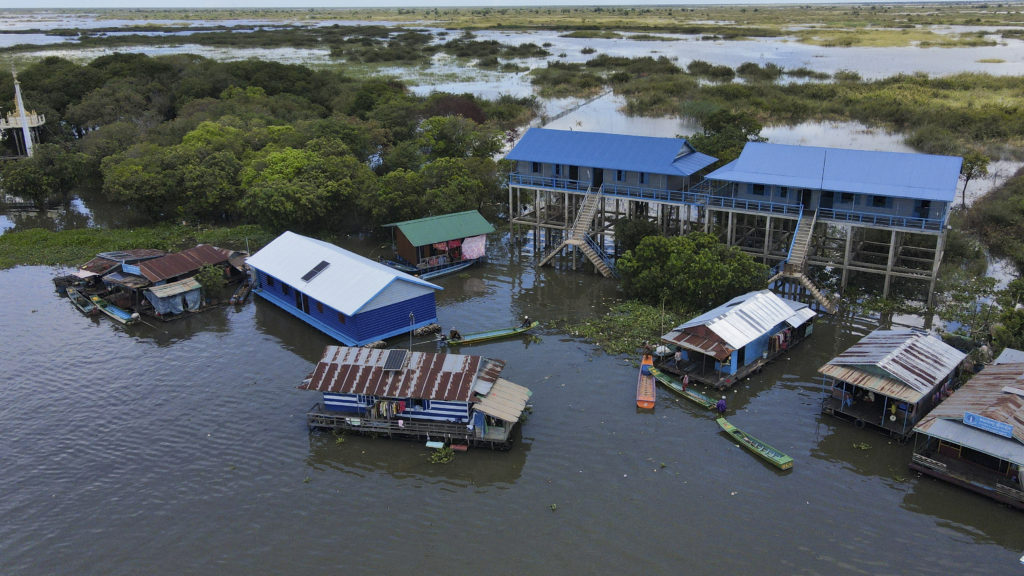
The mobile floating school is a unique adaptation to the seasonal cycles of life around Tonle Sap Lake. For years, local people have taken advantage of the annual migration of fish out of the lake to the Mekong River by living in floating villages. The mobile floating school allows these children to continue their education even though their homes are on the move.
The school is a vital resource for the children of Kbal Taol village. It provides them with a safe and stable place to learn, even during the most challenging times of the year. The school also helps to promote education and literacy in the community, which is essential for the future development of the region.
Since the mobile floating school was built decades ago, it was not in a very good condition, “Sometimes we need to skip the class because the roof and the walls were leaking when raining,” Mr. Teav Piseth, Kbal Taol Primary School Principal told.
In partnership with Education Above All’s Educate A Child programme, Action Education, and a part of the Fisher Folk Making Circular Economy Work for the Western Tonle Sap Lake (FOSTER) led by Oxfam, the floating school was finally refurbished in May 2023. With this support, the students and teachers hope to continue their teaching and learning during the coming rainy season without any fear of canceling classes.
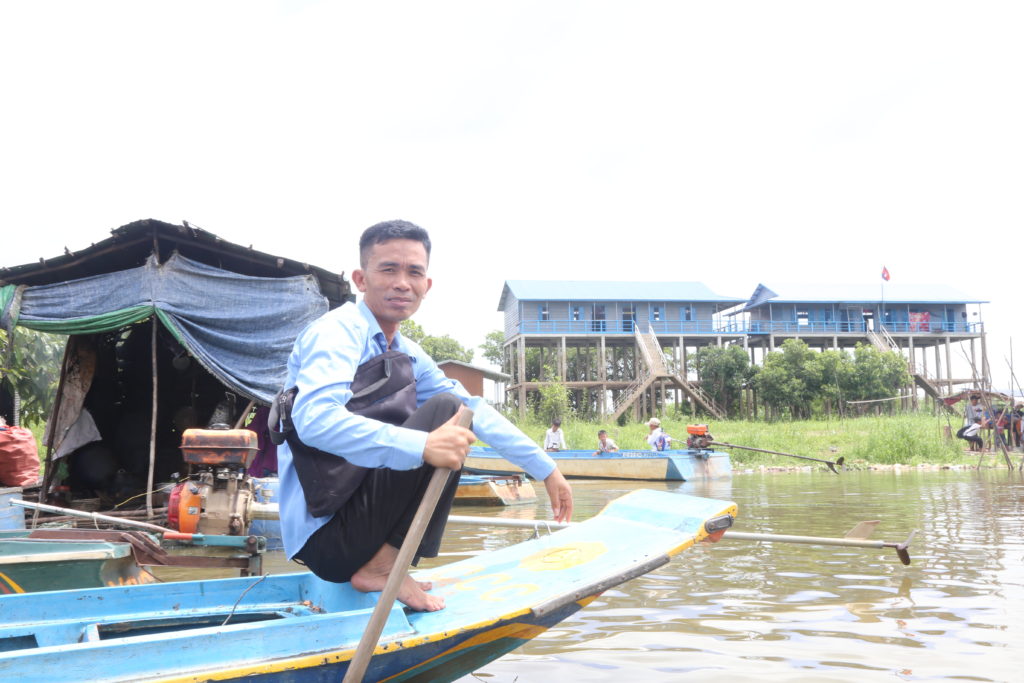
“Students have suspended the classes where there was no proper floating school. The floating school accompanies the villagers to a safe place and allows younger students to continue their studies during the rainy season and heavy rain.” Mr. Teav Piseth, Kbal Taol Primary School principal said.
The Floating Kbal Taol School is a unique educational setting built on a bamboo raft. The raft is essential for keeping the school afloat, and it requires annual maintenance to ensure its safety. However, since 2013, the school has not received any maintenance during the rainy season. This has put the safety of the students and teachers at risk and has made it difficult to provide quality education.
“Every year we need to spend about 6 million riels [$1500] to buy bamboo and the ropes for repairing, and also the additional cost for using a boat to tow the floating school close to the villagers and students.” Teav Piseth, 18 years in the position as the principal of Kbal Taol Primary School said.
Kbal Taol Primary School is a small school in a remote village on Tonle Sap Lake in Cambodia. The school has 242 students, of which 124 are female. There are 8 classes, from first grade to sixth grade, and 6 teachers. The school is facing a number of challenges, including the lack of access to education during the rainy season.
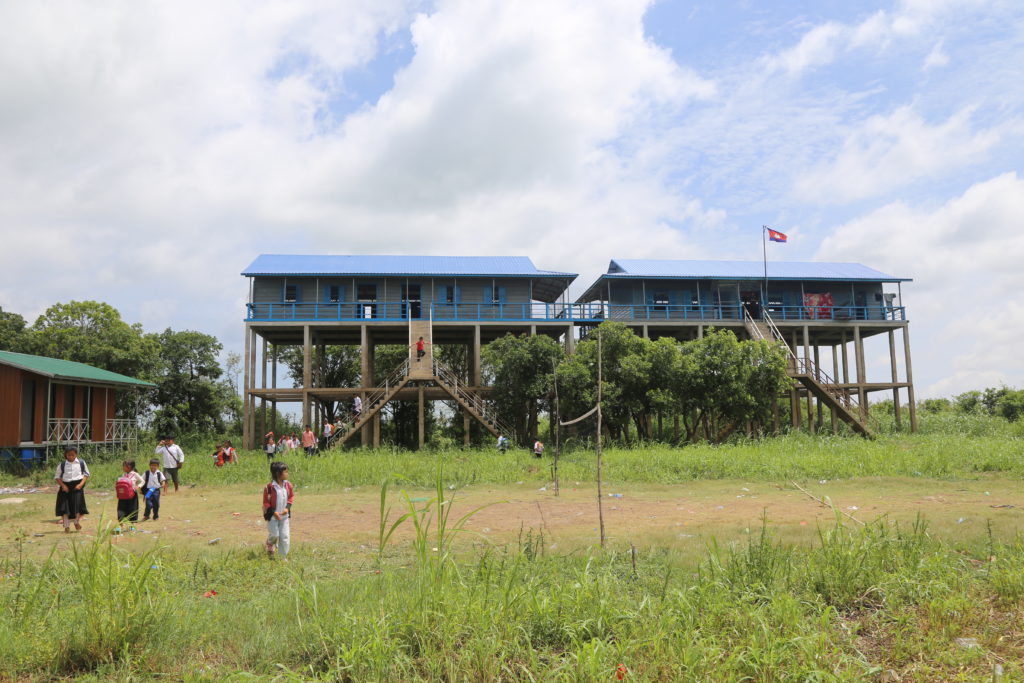
During the rainy season, the lake expands and the villagers relocate to higher ground. This means that the school is inaccessible, and many students are forced to miss school to help their parents with their fishery business. As a result, the school’s student attendance rate is low, and many students are falling behind in their studies.
The school also lacks teaching and learning resources including textbooks. The teachers are underpaid and overworked. This has put the teachers in a difficult position to provide quality teaching, and even harder for students to achieve a good quality learning outcome.
“The students in Kbal Taol Primary School not only challenge themselves with the cycle of the rainy season but also the lack of classrooms. With a two-room floating building, it is not enough to accommodate all students, so we need to prepare 3 shifts during the daytime”, the School principal added.
While studying in the current concrete school, Phun Jing Jing, a second-grade student at Kbal Taol Primary School, said that she was happy to see the newly renovated floating school. She’s looking forward to studying in the new school without skipping classes during the rainy day.
“Without a floating school, relocated near my home, I am not sure I will be able to study regularly and get good results,” Jing Jing said.



